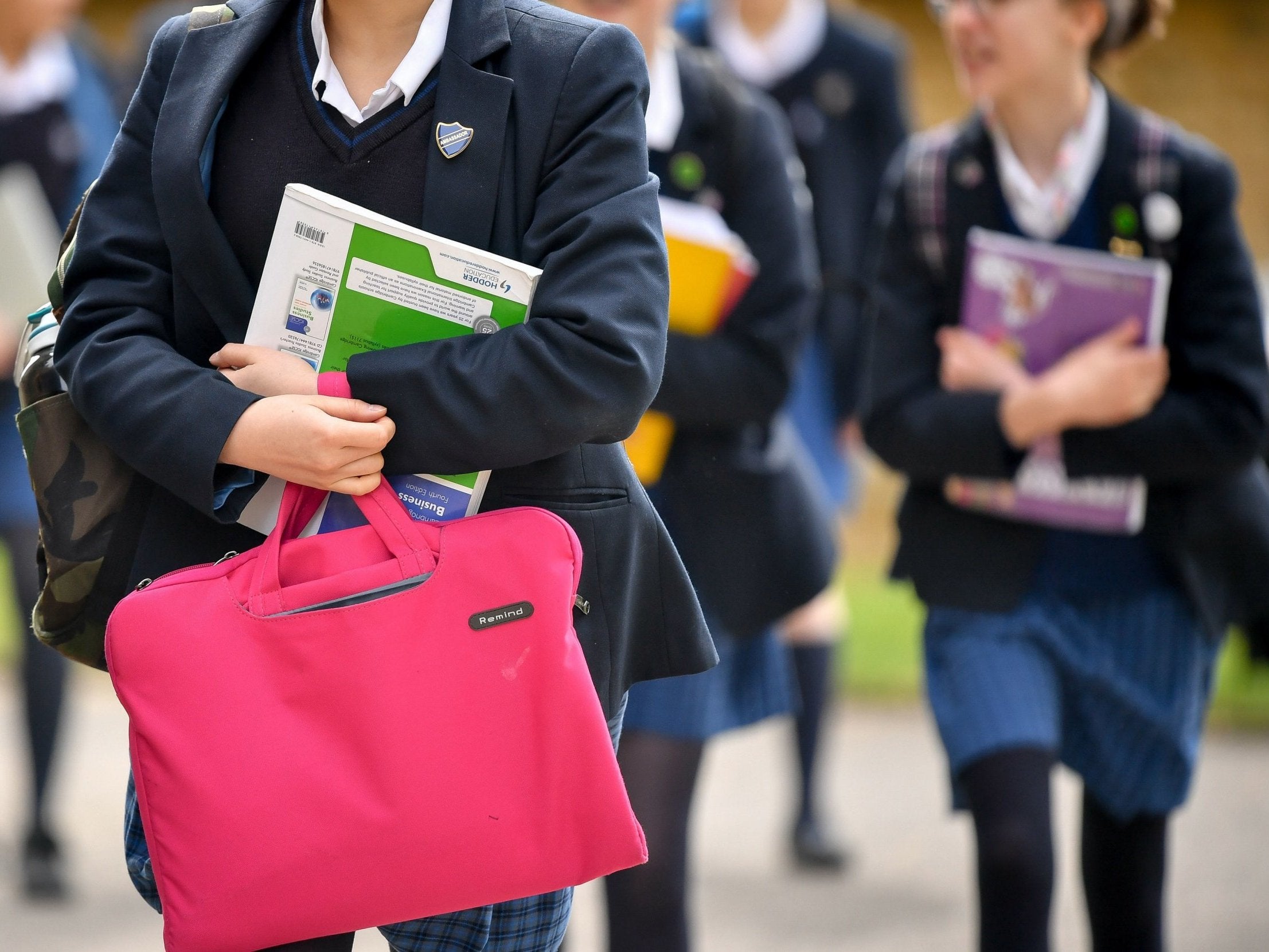Groups applying to open fully selective faith schools with government funding revealed
Move could make social selectivity worse, says social mobility charity

The groups applying for government funding to create new faith schools that can select 100 per cent of their pupils on the basis of religion have been unveiled in the face of opposition from unions and secular campaigners.
Increasing the number of voluntary aided faith schools could be a “disaster for community cohesion” and make “social selection” much worse, campaigners and charities have warned.
And unions have questioned whether the funding for voluntary aided schools, set up by faith groups with council help, will provide places for the local children who need them most.
The majority of the 14 funding applications to the Department for Education (DfE) for new schools are located in the south – with five in London, three in Cambridgeshire and two in Hertfordshire.
It comes after a report from social mobility charity Sutton Trust called on top faith schools that are “socially selective” to admit more poorer pupils from local areas to ensure they are “fairer”.
James Turner, chief executive of the group, said: “Our research has found that leading faith schools are among the most socially selective group of schools compared to their local areas.
“Part of this is because many of them have complicated oversubscription criteria that middle-class parents are better able to navigate.”
He added: “Lifting the restrictions on the proportion of pupils that new faith schools can select on the basis of faith is unlikely to address this social selectivity and could make matters worse.”
The bids for funding come from Catholic, Church of England, Muslim, Hindu and Jewish groups.
It comes after the government announced in May last year that it would provide funding for voluntary aided schools, which can recruit all pupils on religious grounds.
The Conservatives previously pledged to remove the cap on faith-based free schools, which stops them allocating more than 50 per cent of their places on grounds of religion, but this still exists.
Campaigners at the time criticised the DfE of “exploiting a loophole” to increase faith selection.
Ruth Wareham, education campaigns manager for Humanists UK, has called on local authorities and the government to reject the proposals for voluntary aided faith schools.
She said: “One hundred per cent religiously selective schools segregate pupils by religion, ethnicity and parental income, and that is a disaster for community cohesion.”
Alastair Lichten, the head of education at the National Secular Society, added: “The government and local authorities should resist the temptation to pander to assertive religious groups by opening new faith schools which can discriminate in 100 per cent of their admissions.
“Faith schools have a negative impact on social cohesion, foster segregation of children on social, ethnic and religious lines, undermine children’s freedom of and from religion, harm choice and exacerbate inequality.
“In areas where new schools are needed these should be inclusive, rather than being organised around an exclusive religious ethos. We will engage with local supporters, councils and activists to ensure all these proposals face a robust challenge.”
Geoff Barton, general secretary of the Association of School and College Leaders, said: “The priority for the use of scarce capital funding should be to meet demographic need by providing local school places for local children and we have to question whether the decision to fund new faith schools is the best way to achieve this objective.
“It is hugely beneficial for children to be able to mix with people from a variety of backgrounds and this helps to promote community cohesion.”
Kevin Courtney, from the National Education Union (NEU), said the union was opposed to fully selective schools “whether they are secular or faith schools”.
He added: “The NEU supports an inclusive and comprehensive education system that provides high-quality education to all pupils whatever their faith, ethnic origin, economic or social background.”
A DfE spokesperson said: “Voluntary-aided schools are an important part of our diverse school system.
“This scheme will enable faith and other groups to open new schools where there is a need and a parental demand and give more children, regardless of their background, access to the best possible education.
“By the end of this decade, this government is on track to have created a million new school places since 2010 – the largest increase for at least two generations – to ensure every child has access to a good school place.
“The voluntary-aided scheme will play a part in that by helping communities create the schools they want.”
Join our commenting forum
Join thought-provoking conversations, follow other Independent readers and see their replies
Comments